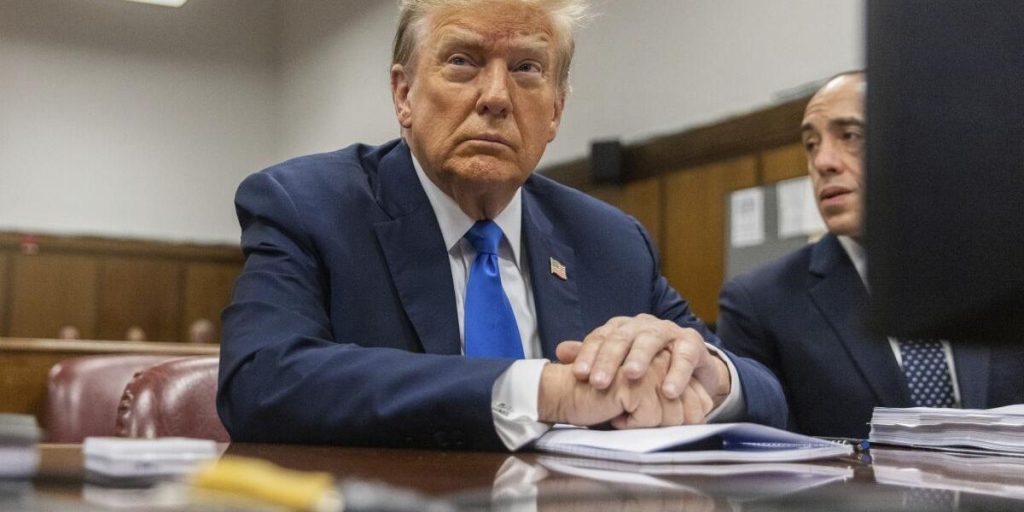Former federal prosecutor Ryan Goodman addressed the possibility of former President Donald Trump not just straining the limitations of a gag order imposed on him by New York Judge Juan Merchan in his criminal falsification of business records trial but doing so during the trial itself.
“To make these statements, or have them made from within the courthouse, would be to amplify the ‘contempt’ of and for the court,” Goodman, who is also co-editor-in-chief of Just Security, wrote on Twitter.

In a separate affidavit, prosecutors named seven instances in which Trump allegedly violated the gag order.
Goodman referred to multiple time stamps from Monday and Tuesday that, if they hold up, might reveal Trump’s apparent brazenness in violating the gag order while inside the courtroom.
“See some of the time stamps that DA identifies in new motion,” Goodman wrote in an email. “Monday, 9:12 a.m. Monday, 10:26 a.m. Tuesday, 1:50 p.m.
A contempt hearing has been scheduled for April 23 at 9:30 a.m. after prosecutors protested about Trump’s potential violations of the gag order, which was designed to protect court officials, jurors, witnesses, and relatives of both Merchan and Manhattan District Attorney Alvin Bragg.

Assistant District Attorney Christopher Conroy specifically asked for a $1,000 punishment for each of the alleged offenses, as well as an injunction requiring the 45th president to remove them from his Truth Social account and warning him that further violations “could result in jail time.”
Conroy hinted at the time of the alleged fourth gag order violation, saying, “It’s entirely possible it was done within this courthouse.”
On April 1, Merchan increased the gag order granted on March 26 to include “the family members of any counsel, staff member, the Court, or the District Attorney.”